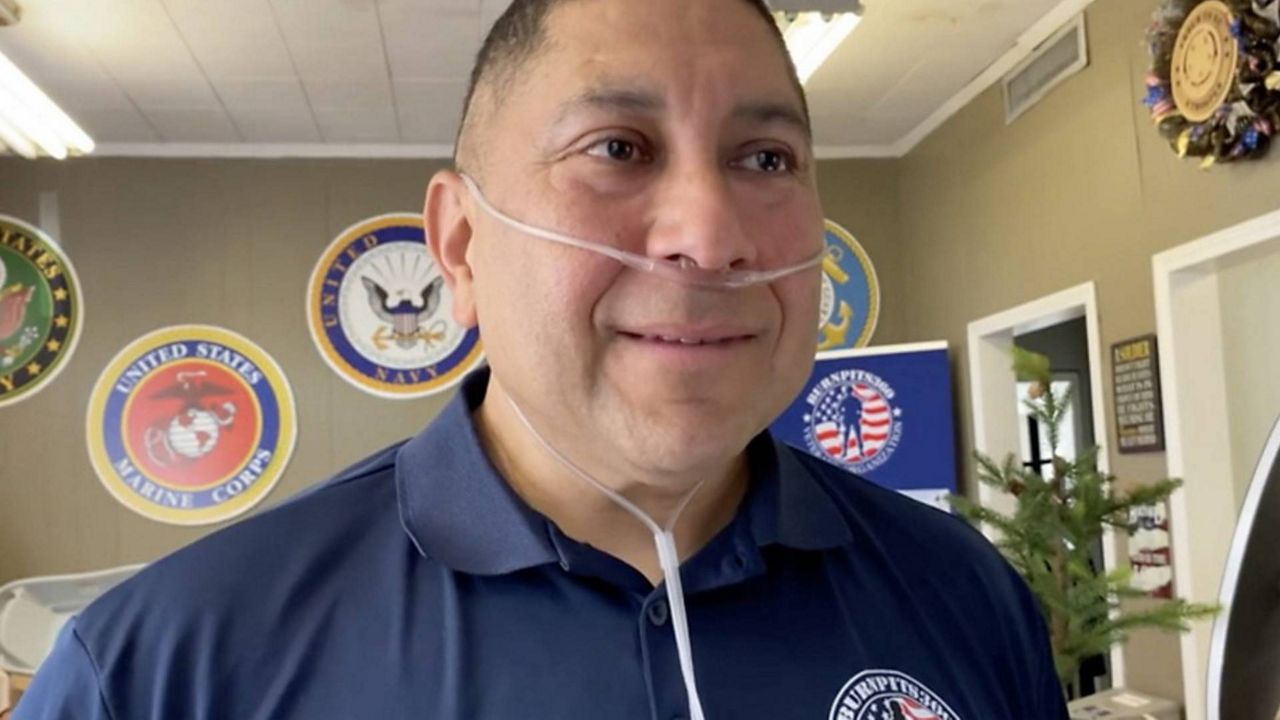TEXAS — The U.S. Supreme Court gave Le Roy Torres — a retired disabled DPS trooper from Robstown — the right to sue Texas for failing to find him a job upon his return from duty in Iraq.
Torres enlisted in the U.S. Army Reserve in 1989. By the time he was called up for duty in Iraq in 2007, Torres already had served 9 years as a trooper with the Department of Public Safety. Honorably discharged, Torres returned to DPS in 2008.
Damage to Torres’ lungs — caused by the burning trash pits in Iraq — didn’t fully emerge in 2010. At that time, Torres asked for any other job at DPS; the agency only offered him “temporary duty officer.” Torres left and sued DPS in 2017, saying federal law required DPS to accommodate his disability.
“It’s just monumental,” Torres told Spectrum News reporter Crystal Dominguez, with tears in his eyes. “I received a message from a fellow veteran from another state. He goes, ‘Man, I was just hoping and praying for your case, because this will give me hope.’ And now he’s going to have that hope.”
The court’s decision levels the playing field for veterans who don’t have the protections of full-time military deployment: people who have enrolled in the National Guard or military branch reserves. After this decision, no state can claim sovereign immunity from employment claims.
Jeff Phillips, executive director of the Reserve Organization of America, sent not one, but two letters to Gov. Greg Abbott, asking him to intervene in Torres’ case.
“Basically, the letters were saying, ‘Gov. Abbott, do the right thing. This man has served his country. He was disabled in service,’” Phillips said. “He couldn’t be a state trooper — you couldn’t imagine him being out on I-10, being a state trooper, right? He has a very serious illness.”
The federal Uniformed Services Employment and Reemployment Rights Act, referred to as USERRA, was passed in 1994 after Desert Storm to protect those people in the National Guard and military branch reserves who needed to return to civilian jobs after deployment.
The requirements of the law are simple: If you are in the Guard or reserves, you must inform your employer of your deployment. You have to serve less than five years in the military while you are employed. You are required to return to work in a timely fashion. And you must separate from your military service with an honorable discharge.
“If you are eligible to be reemployed, you must be restored to the job and benefits you would have attained if you had not been absent due to military service, or, in some cases, a comparable job,” according to the Department of Labor’s guidelines for USERRA.
Attorney Brian Lawler, who represented Torres, said today’s opinion is the most significant decision ever issued under USERRA. It opens the door for hundreds — and possibly thousands — of civilian military members to challenge a potential dismissal from any job.
Torres’ case will be remanded back to the original court in Corpus Christi, where it began five years ago. “All we were asking the Supreme Court to do was to try his case on its merits,” Lawler said. “And that’s what we want: to decide the case on its merits.”
Over 1 million Guard and Reserve members have been called up for duty, Phillips said. The Reserve and the Guard make up about 40% of the country’s armed forces, and 53% of the Army as the United States has pursued military action after 9/11.
“We are always very appreciative of American employers. We don’t see this demand on them going down,” Phillips said. “ROA is very supportive of employers. Our legislative initiatives is to get tax credits into law so that employers with members on Guard and Reserve duty get tax credits, and they get a greater tax credit, the longer the deployment.”
The organization also has fought to move Guard and Reservists under the military health care system.
“We’re very interested in getting military health care on a 24/7, 365 (day) basis for members who are expected to deploy, so that employers don’t have to worry about their health care,” Phillips said. “We’ve tried to create incentives for employers who have been very patriotic and, overall, have been very supportive.”



